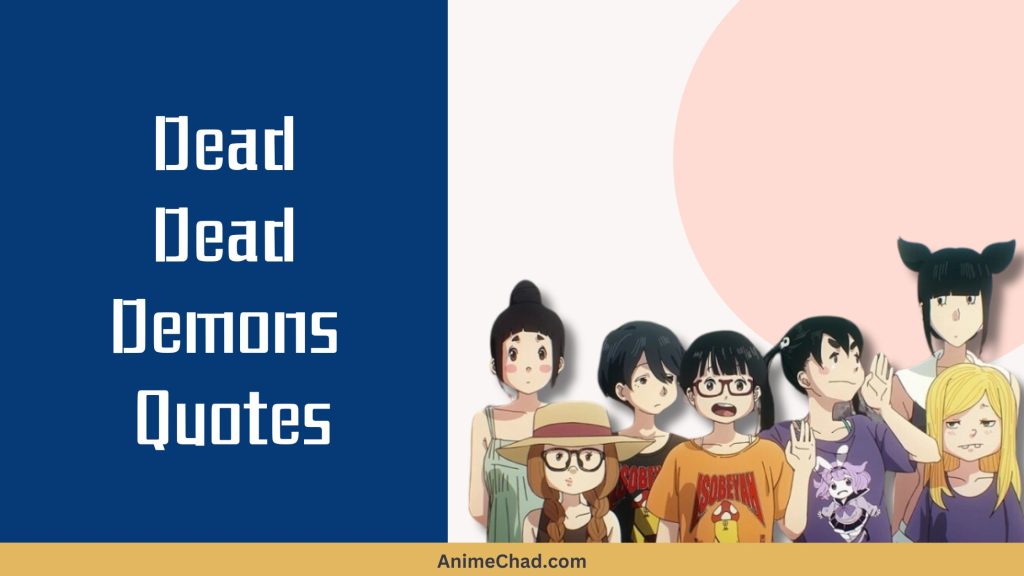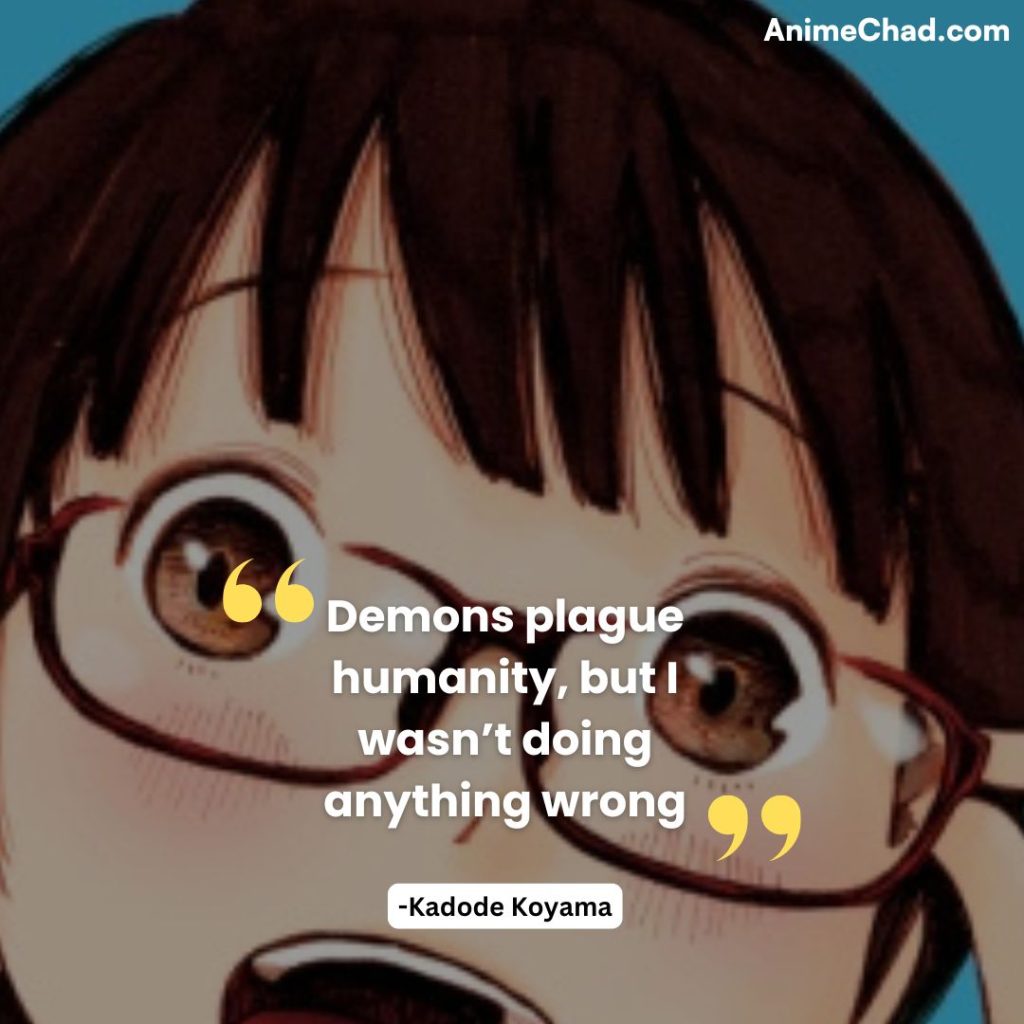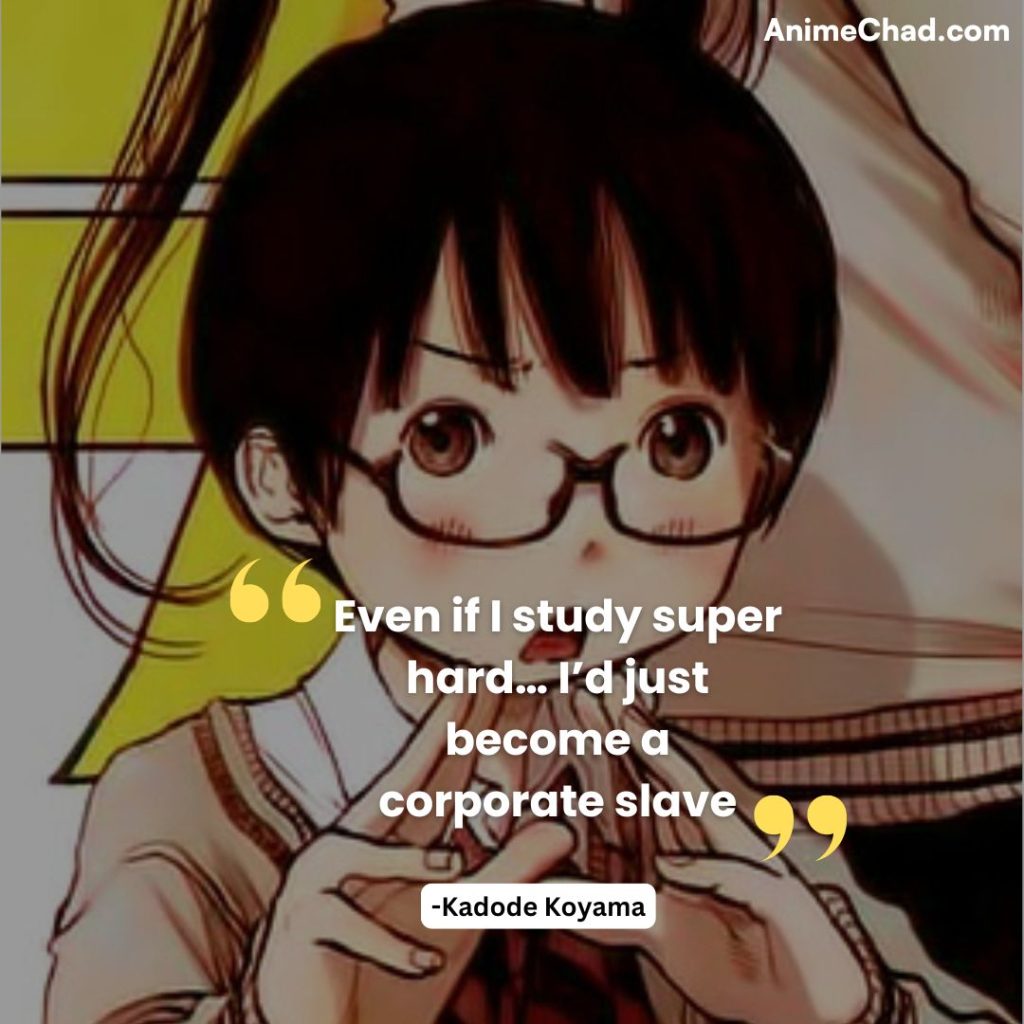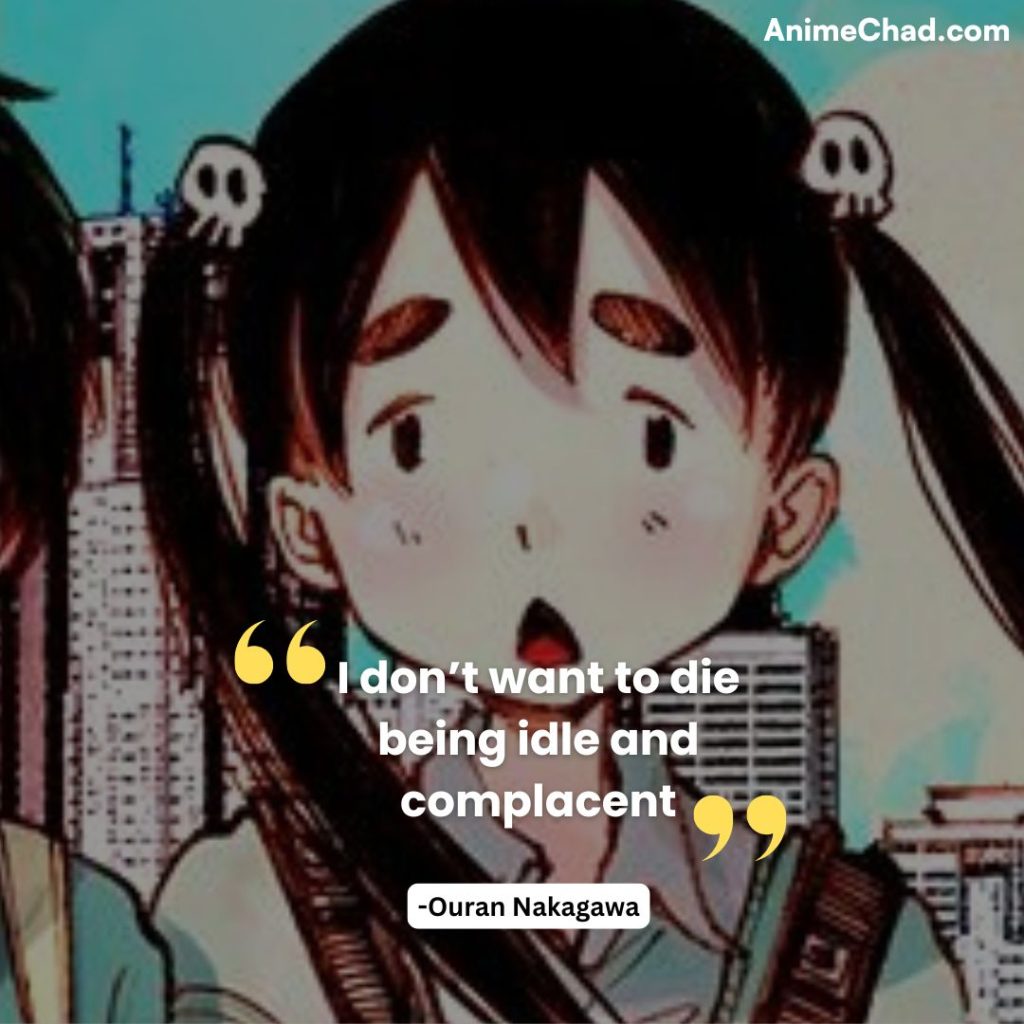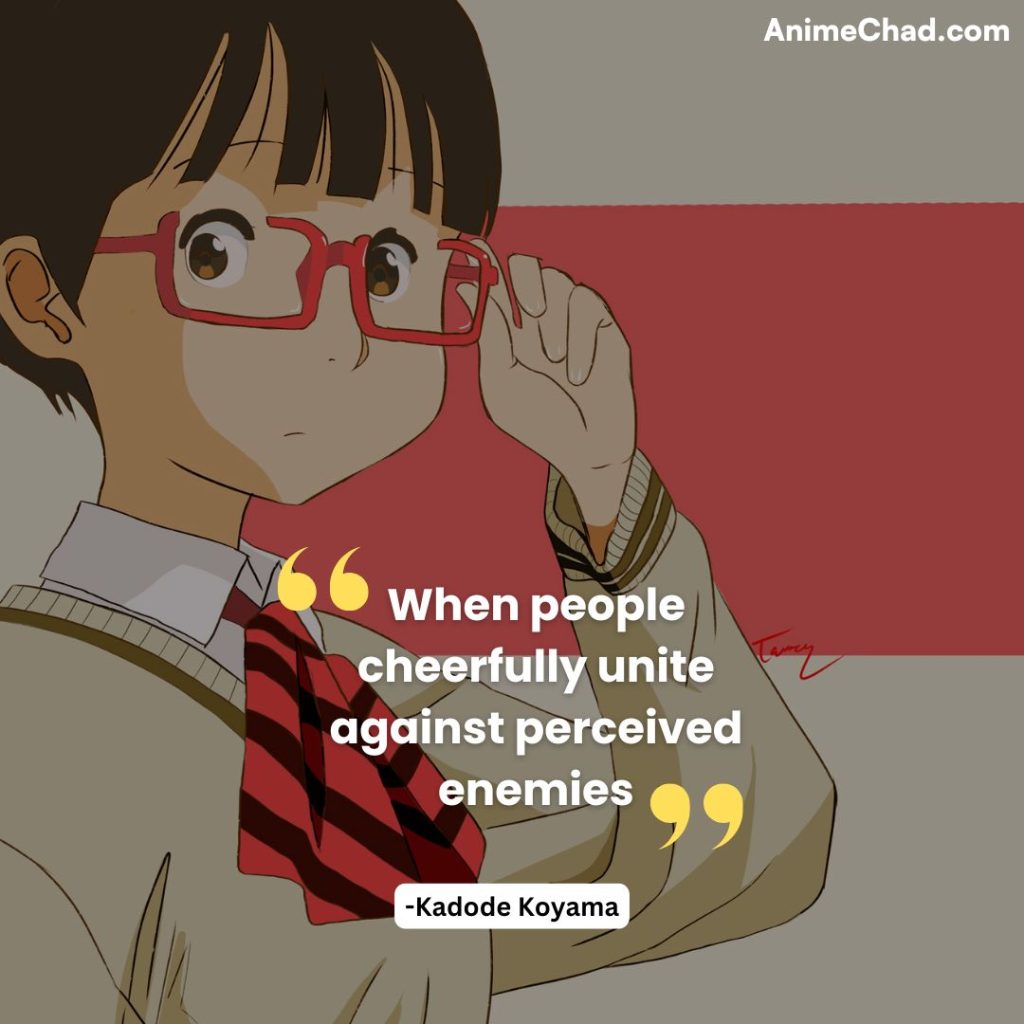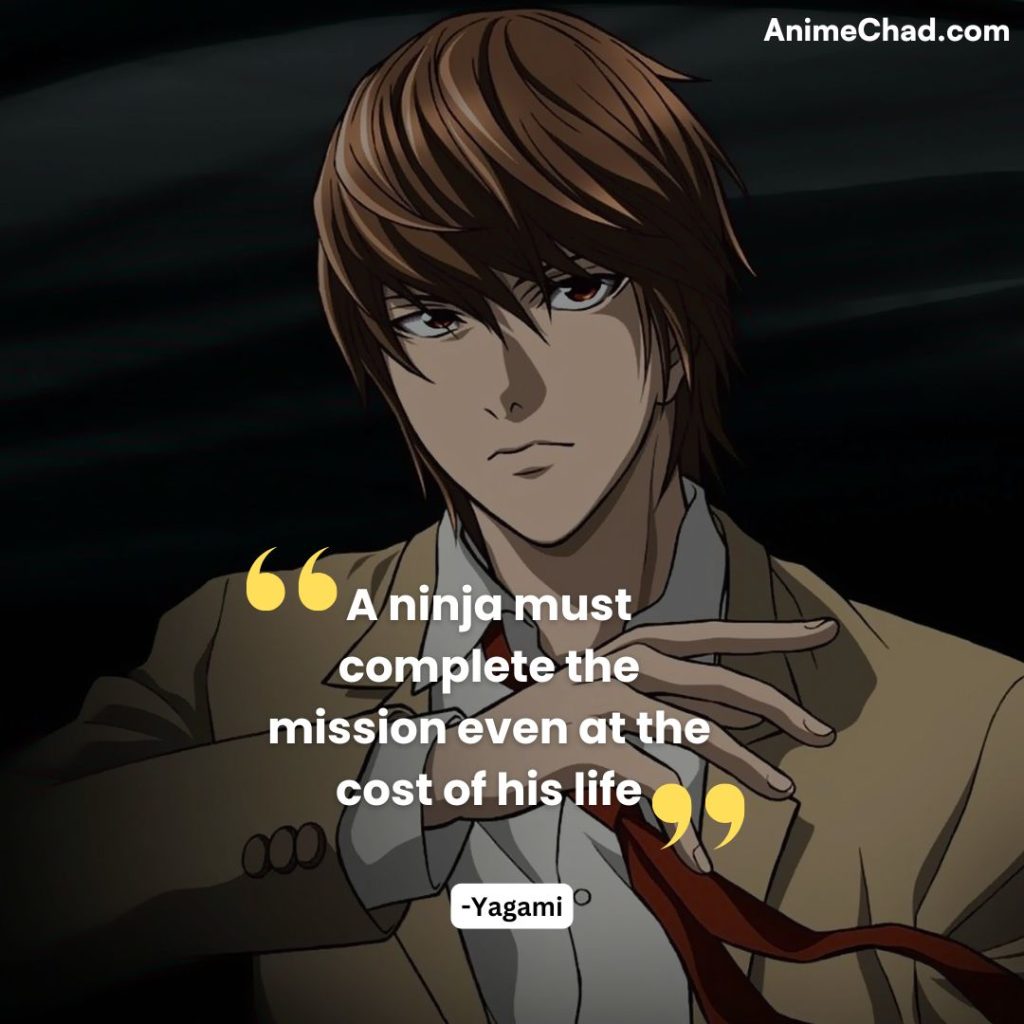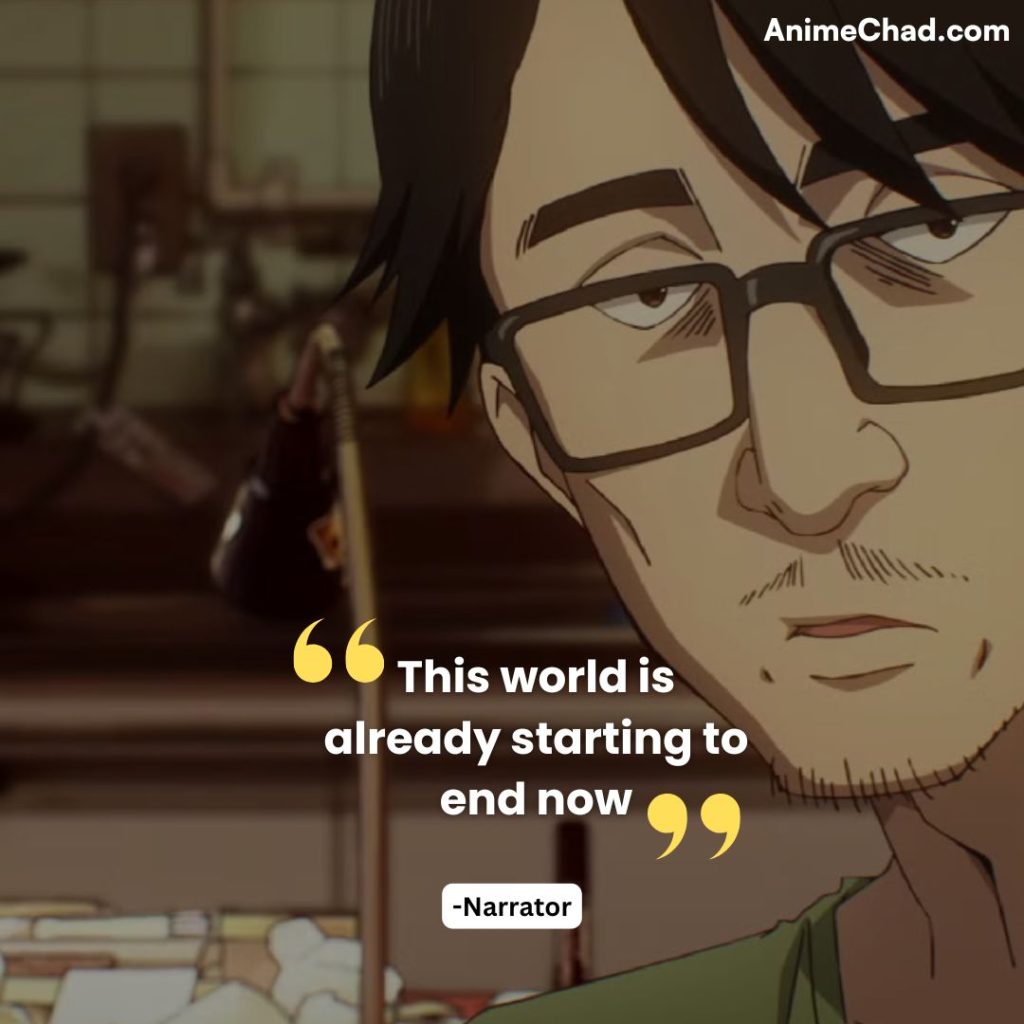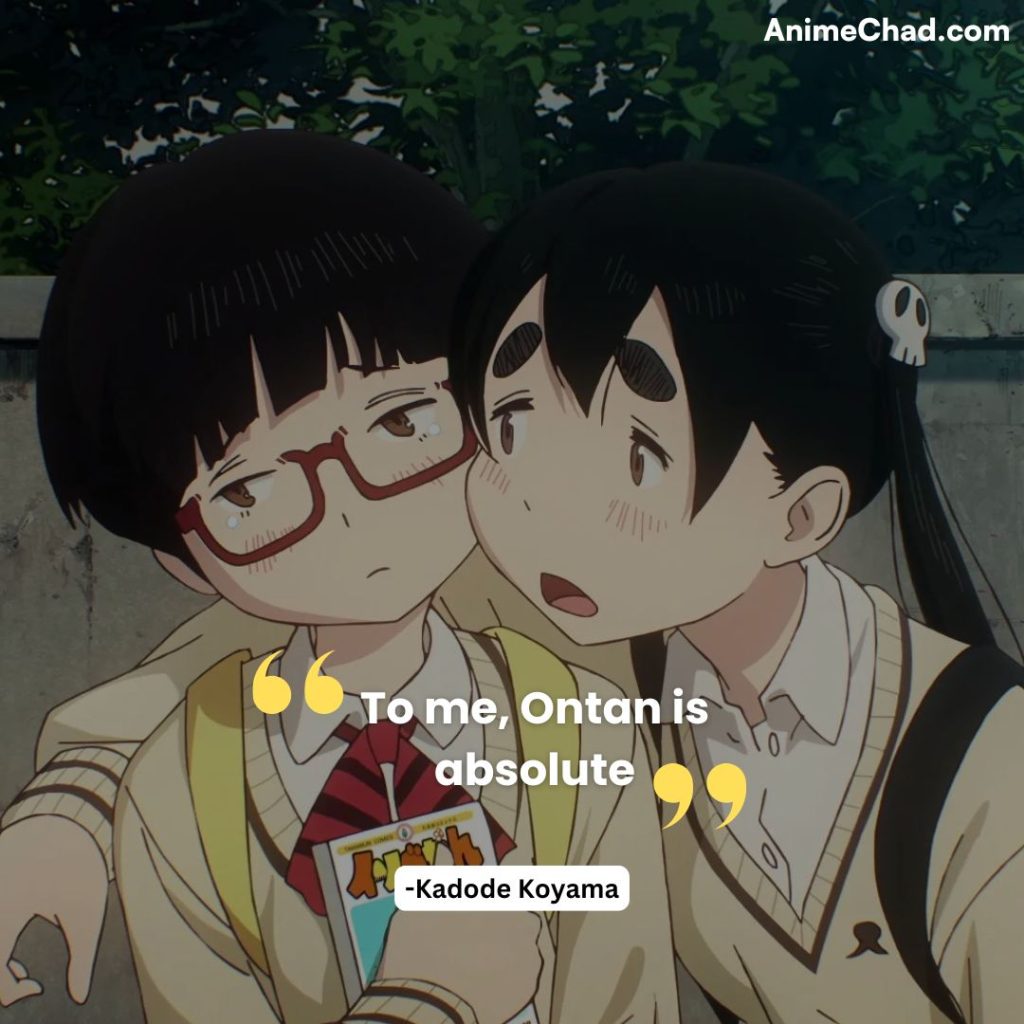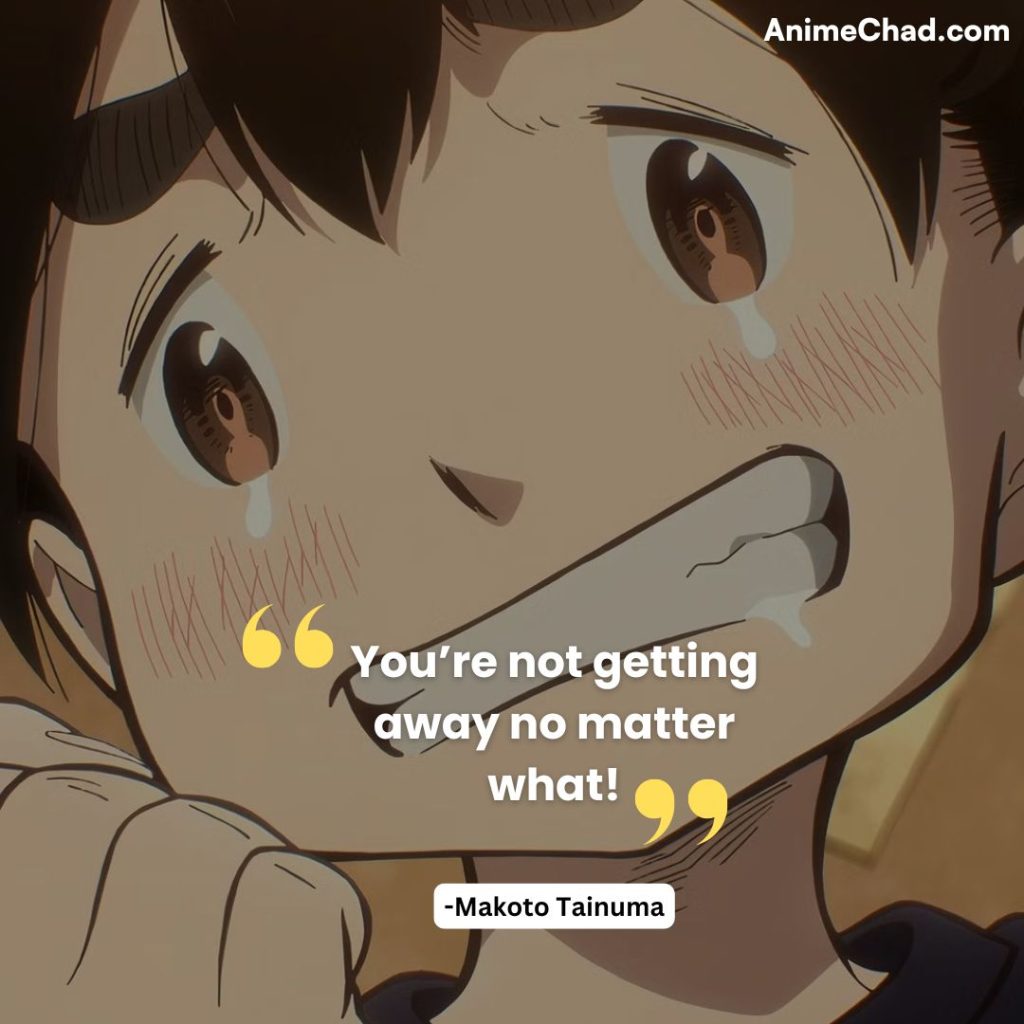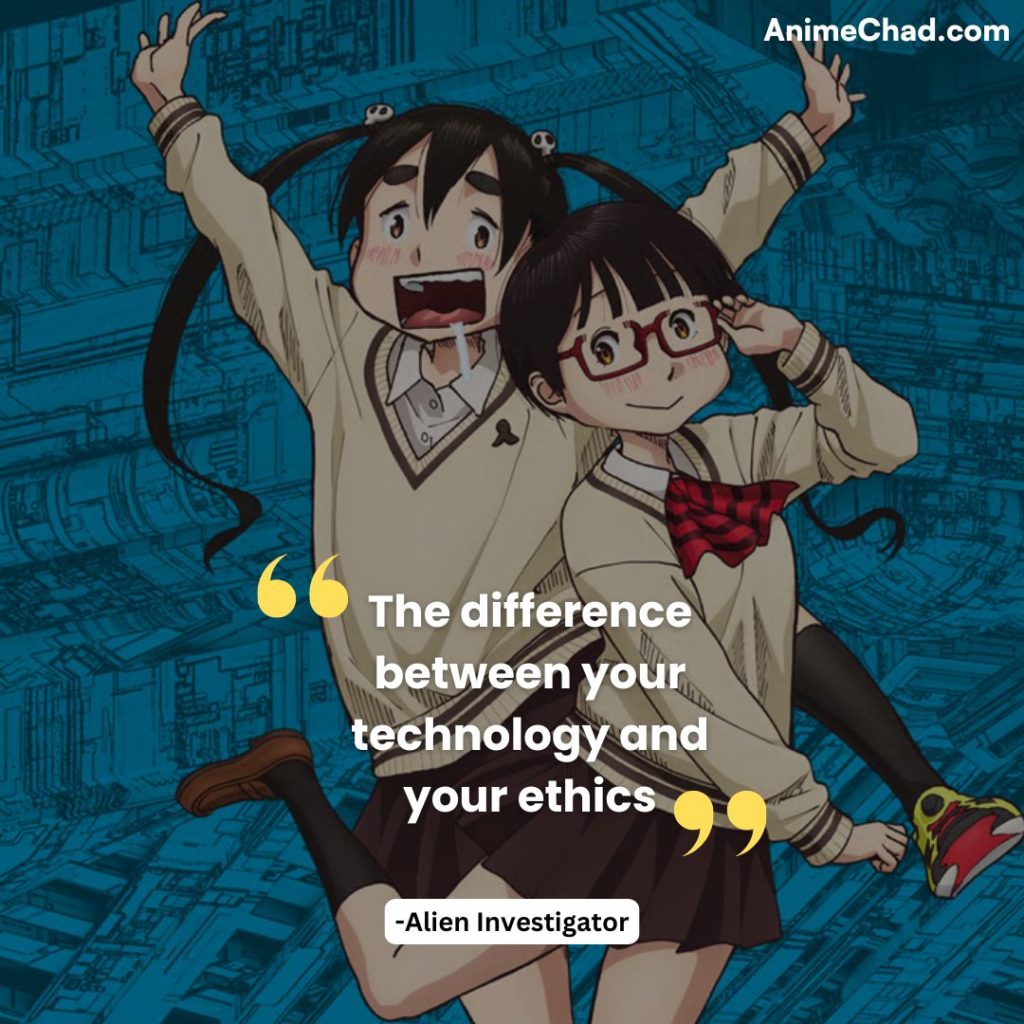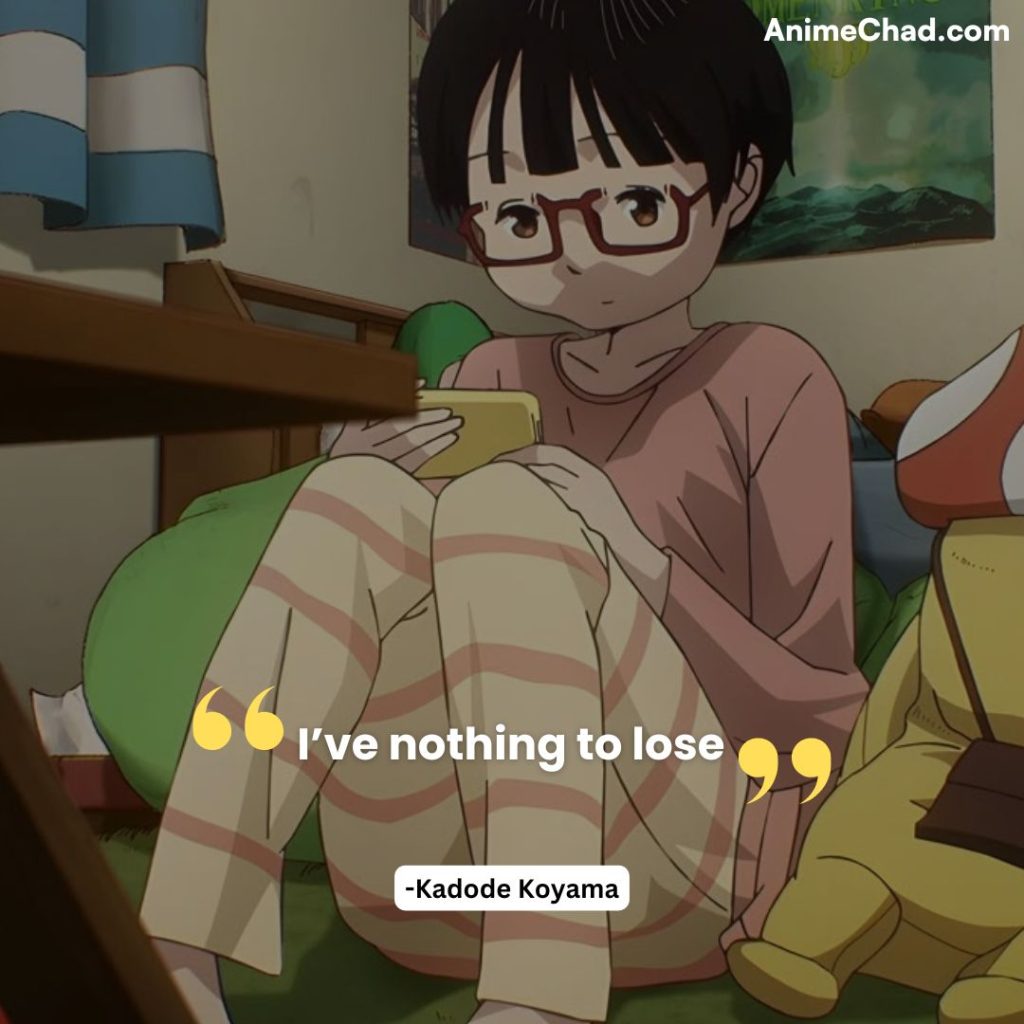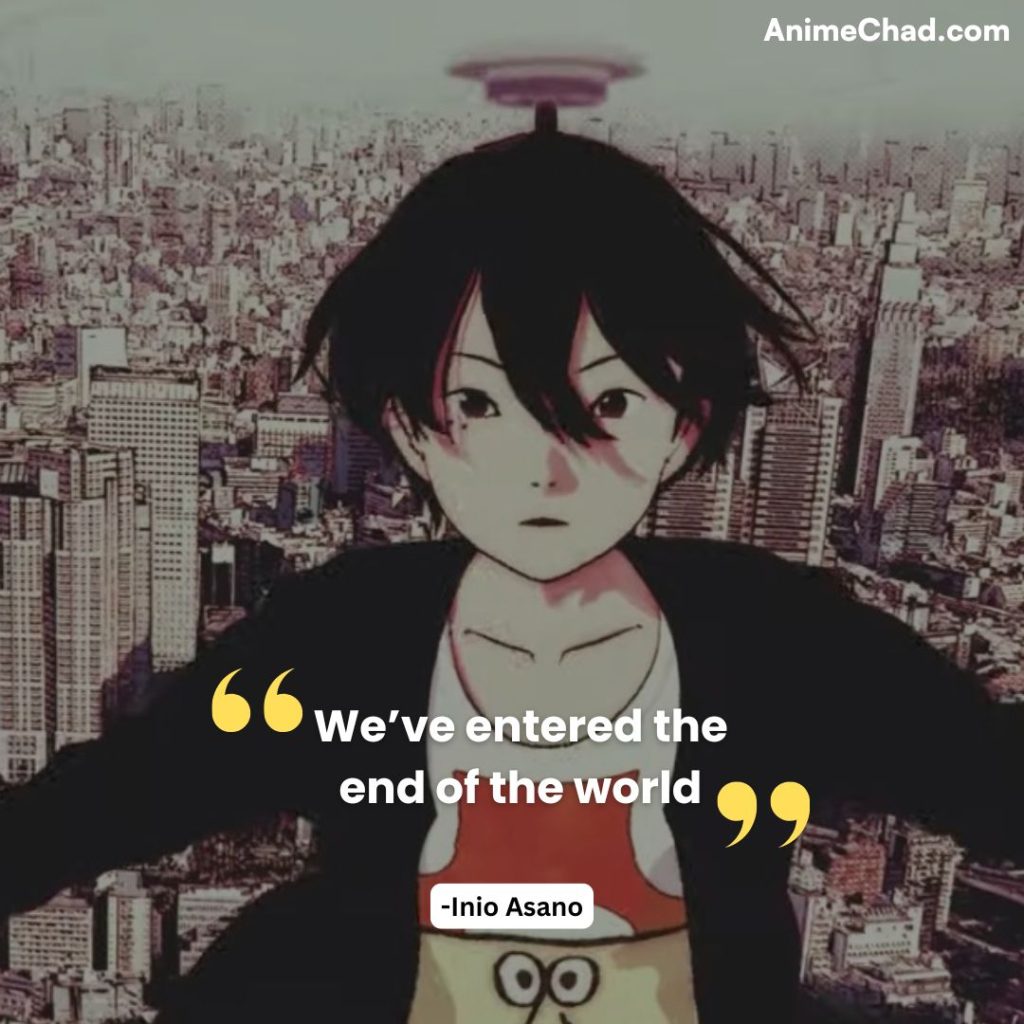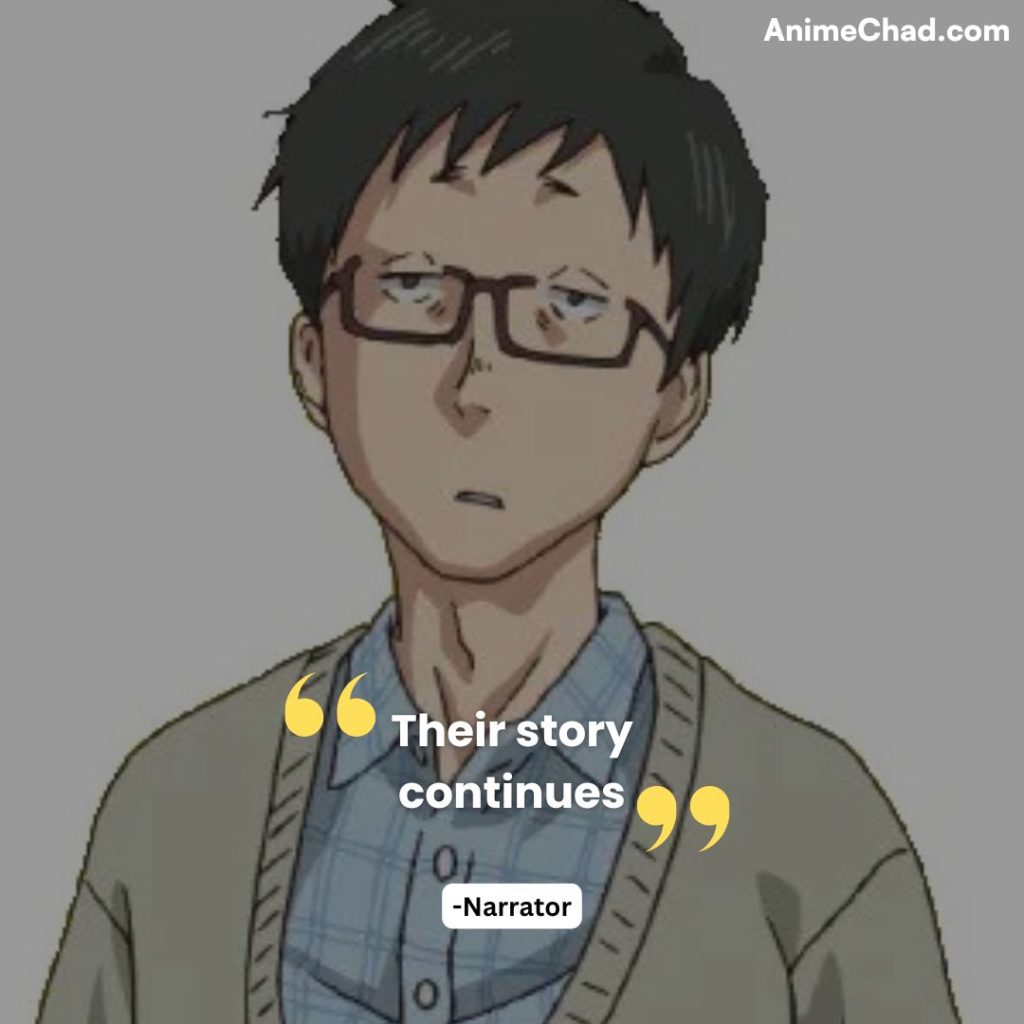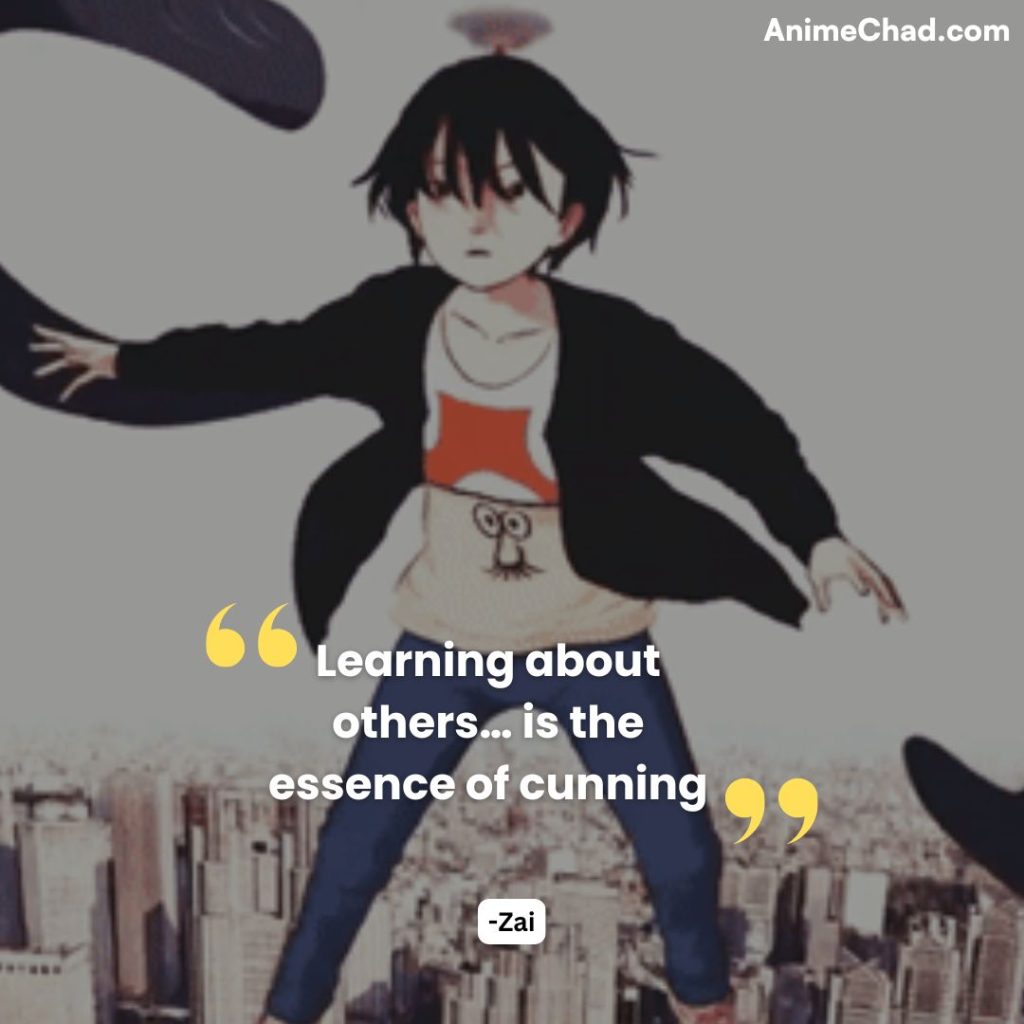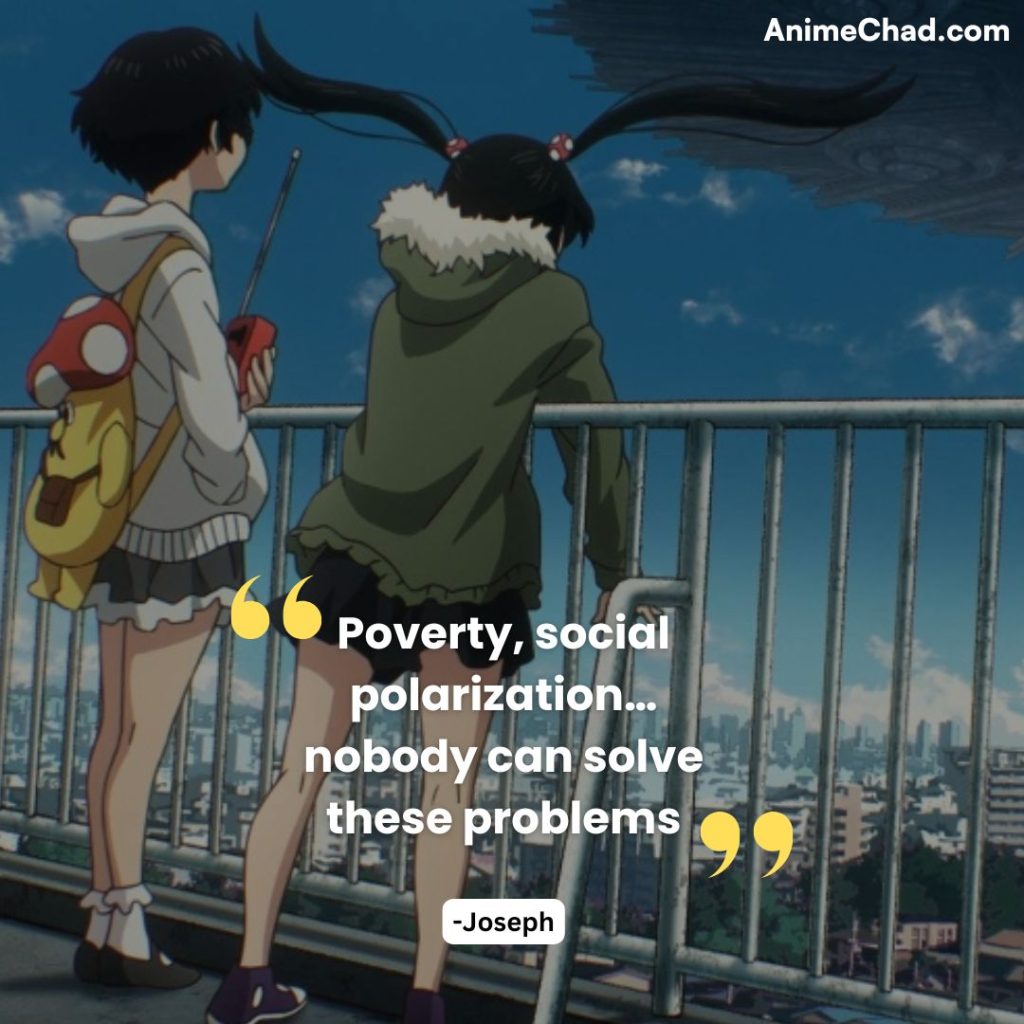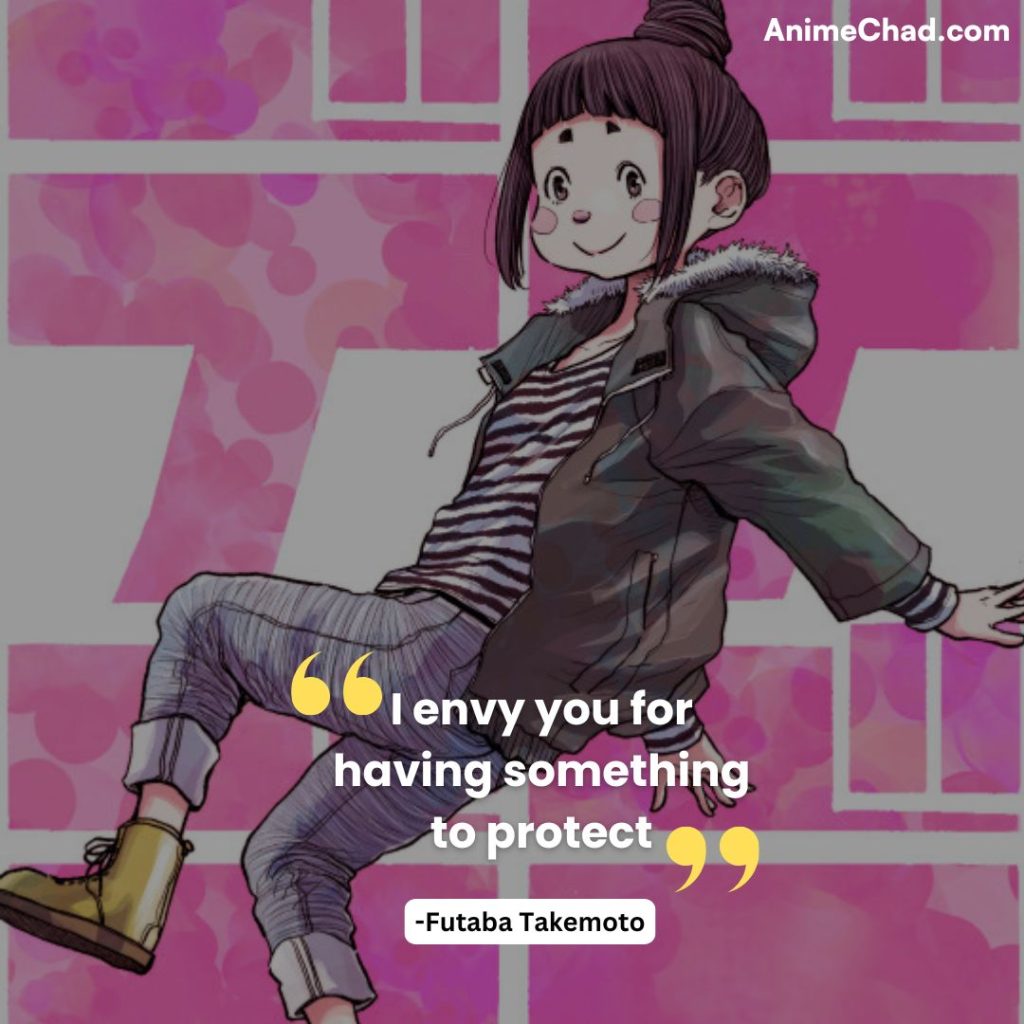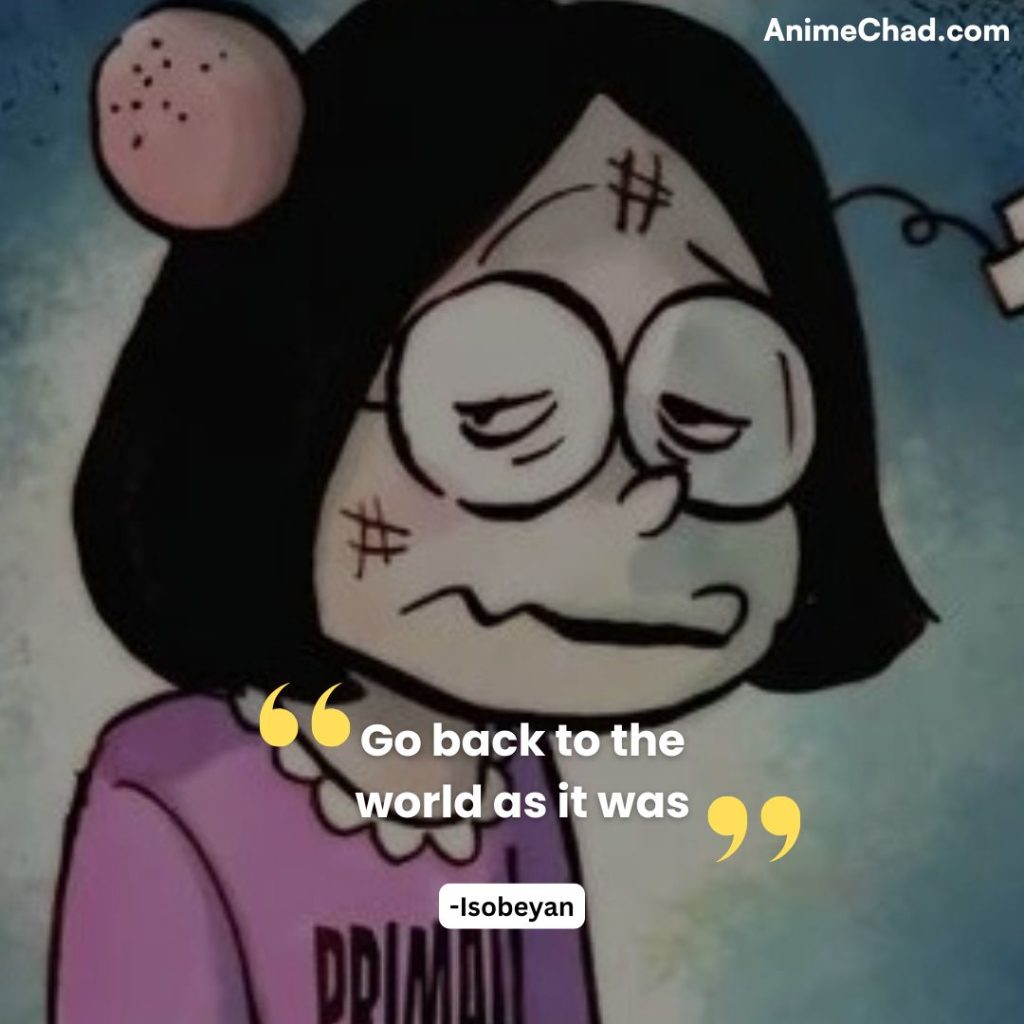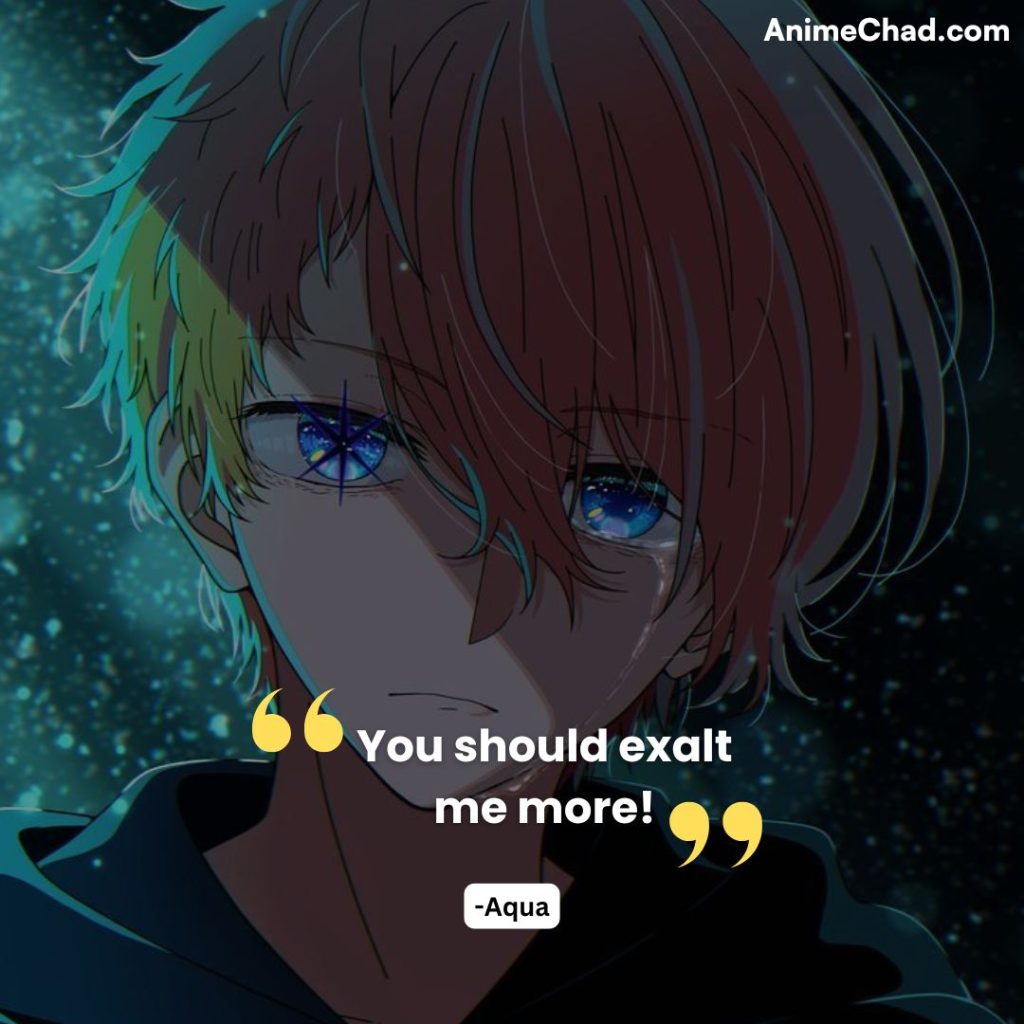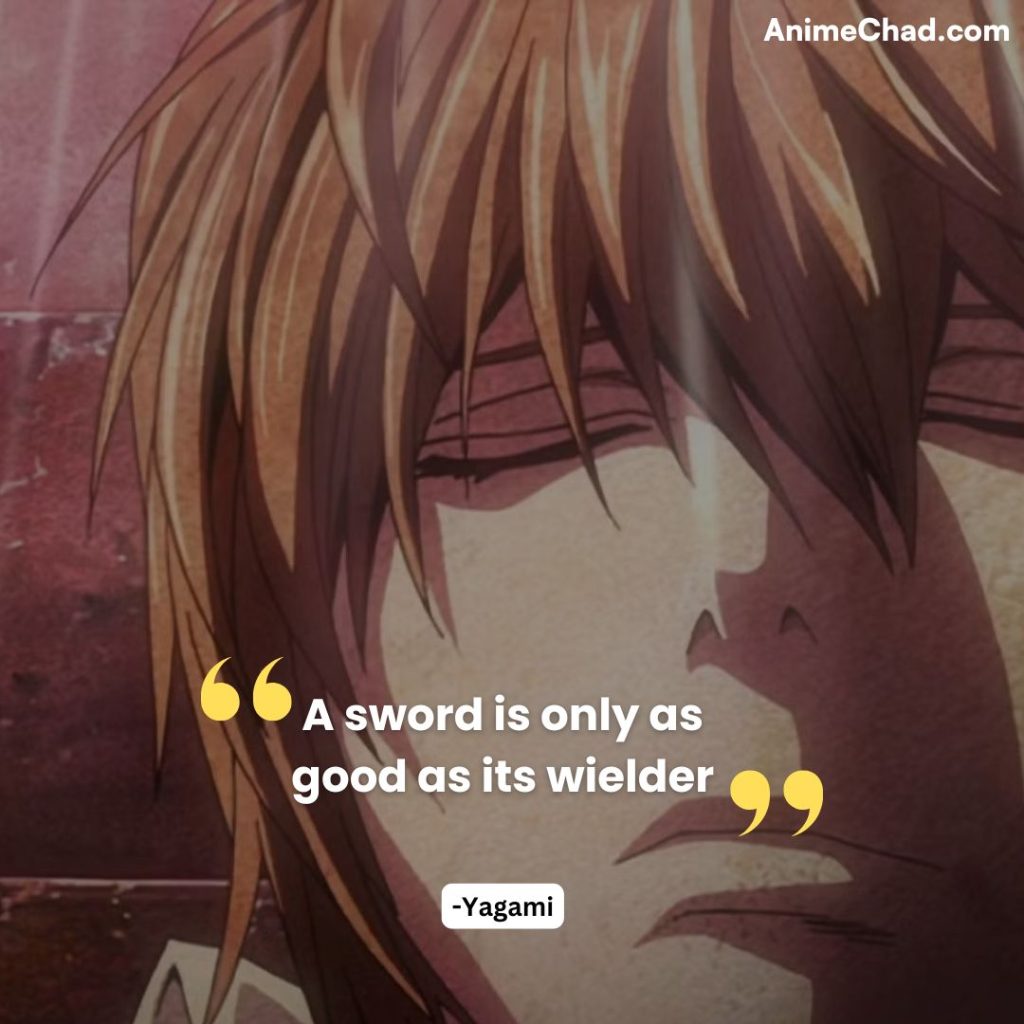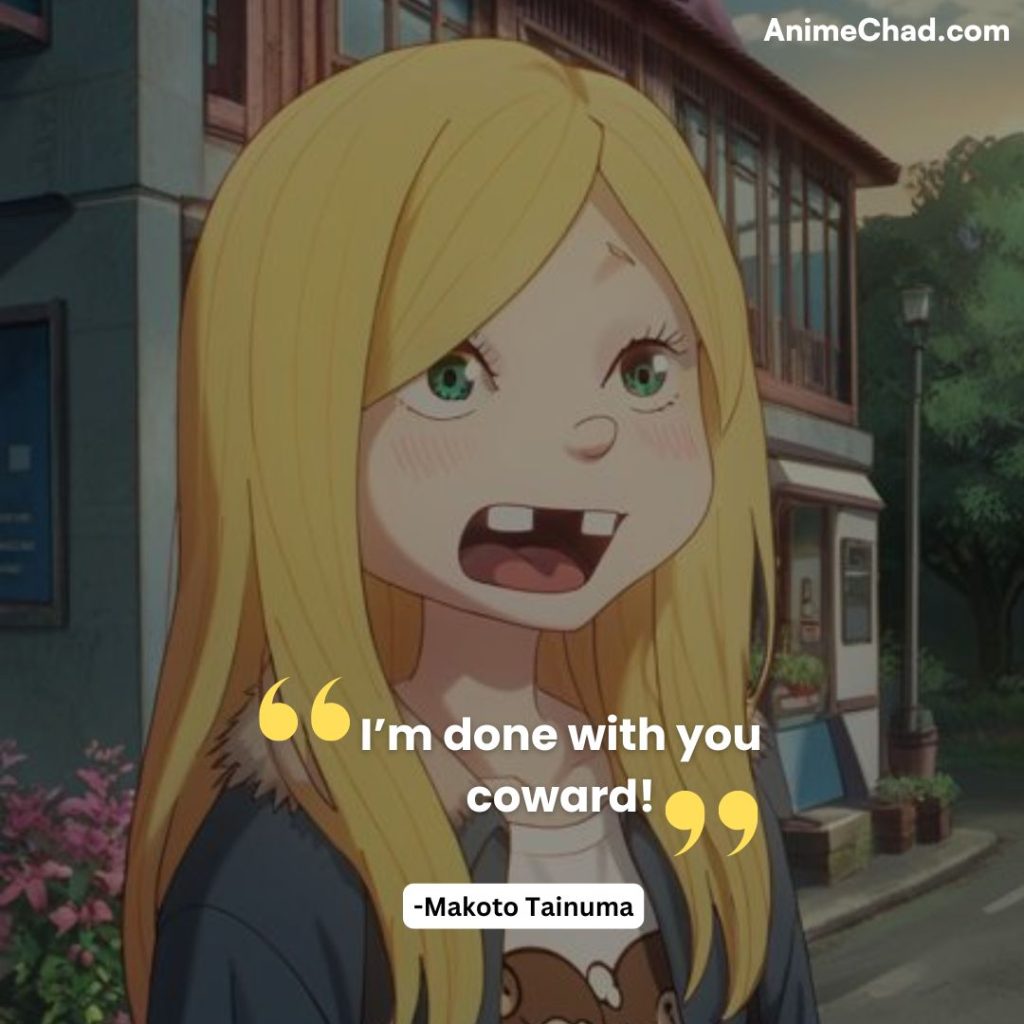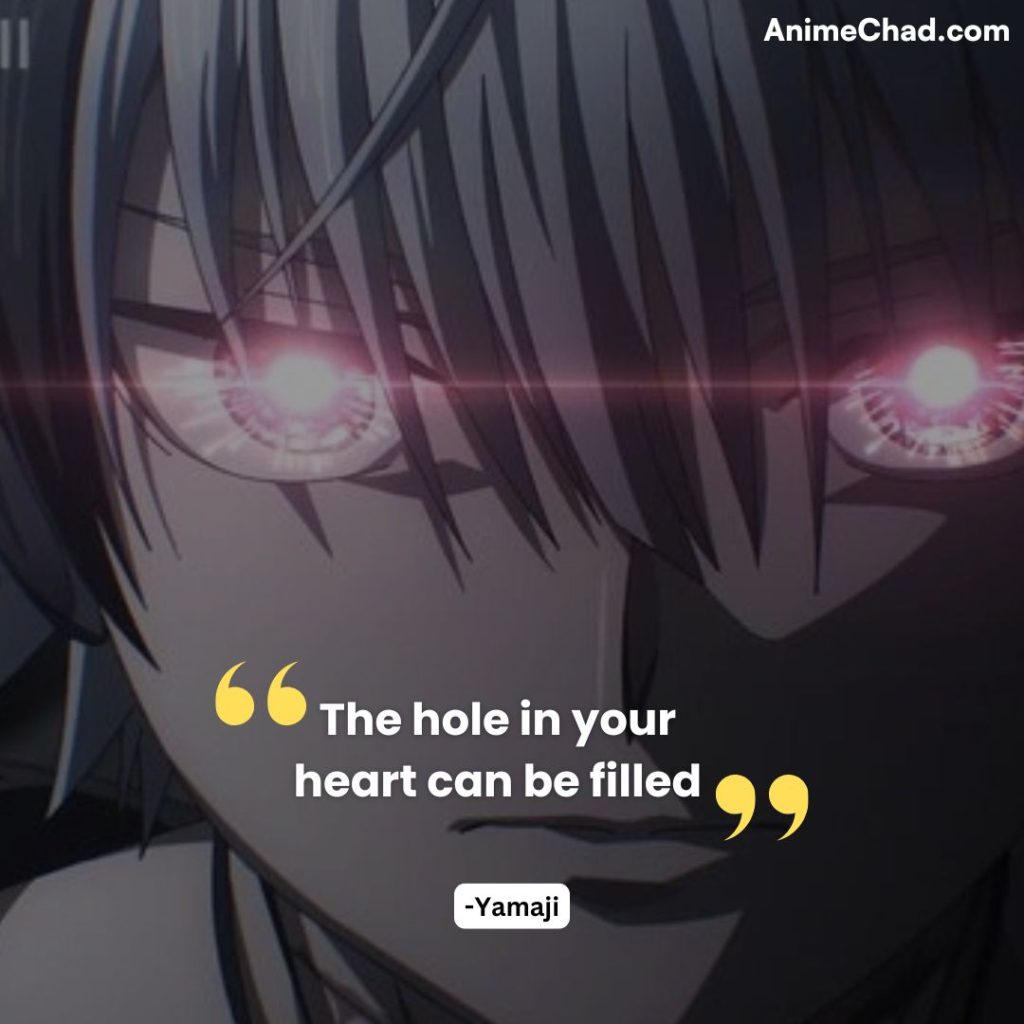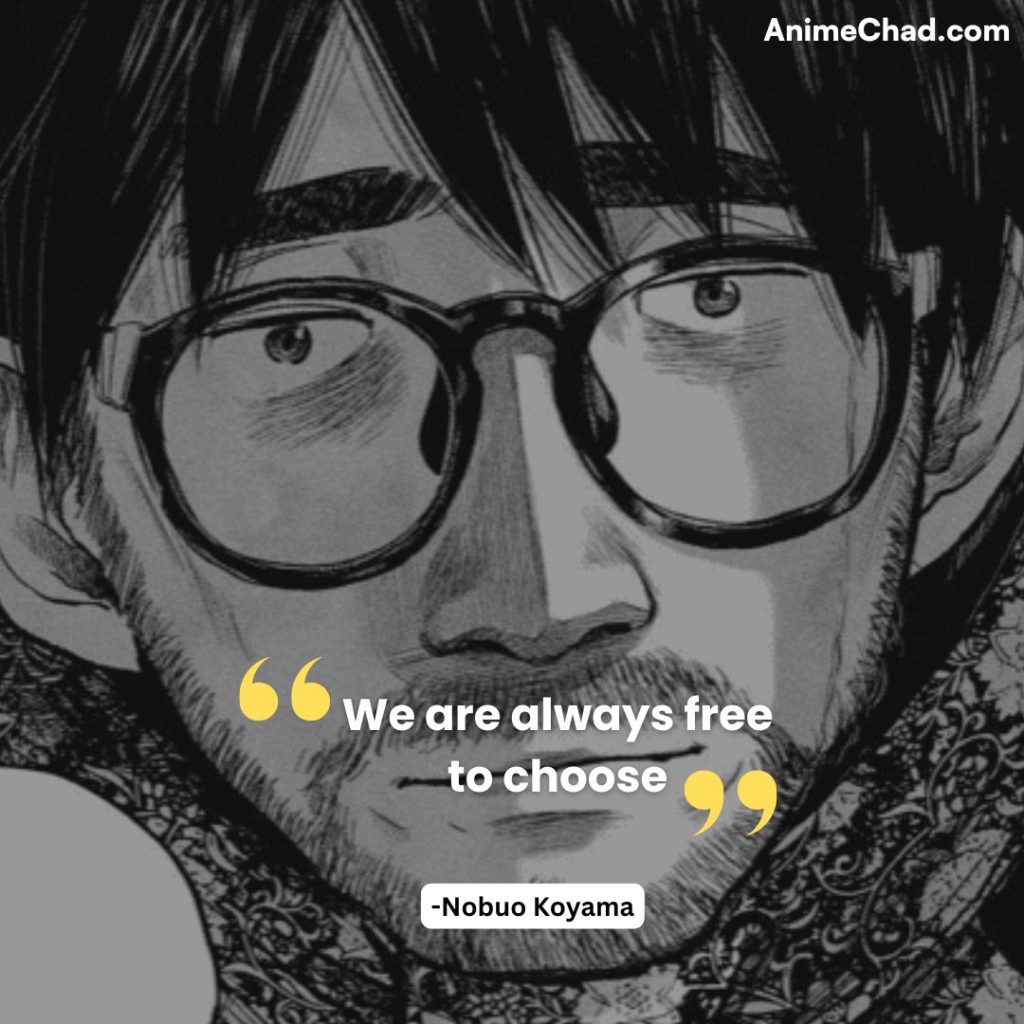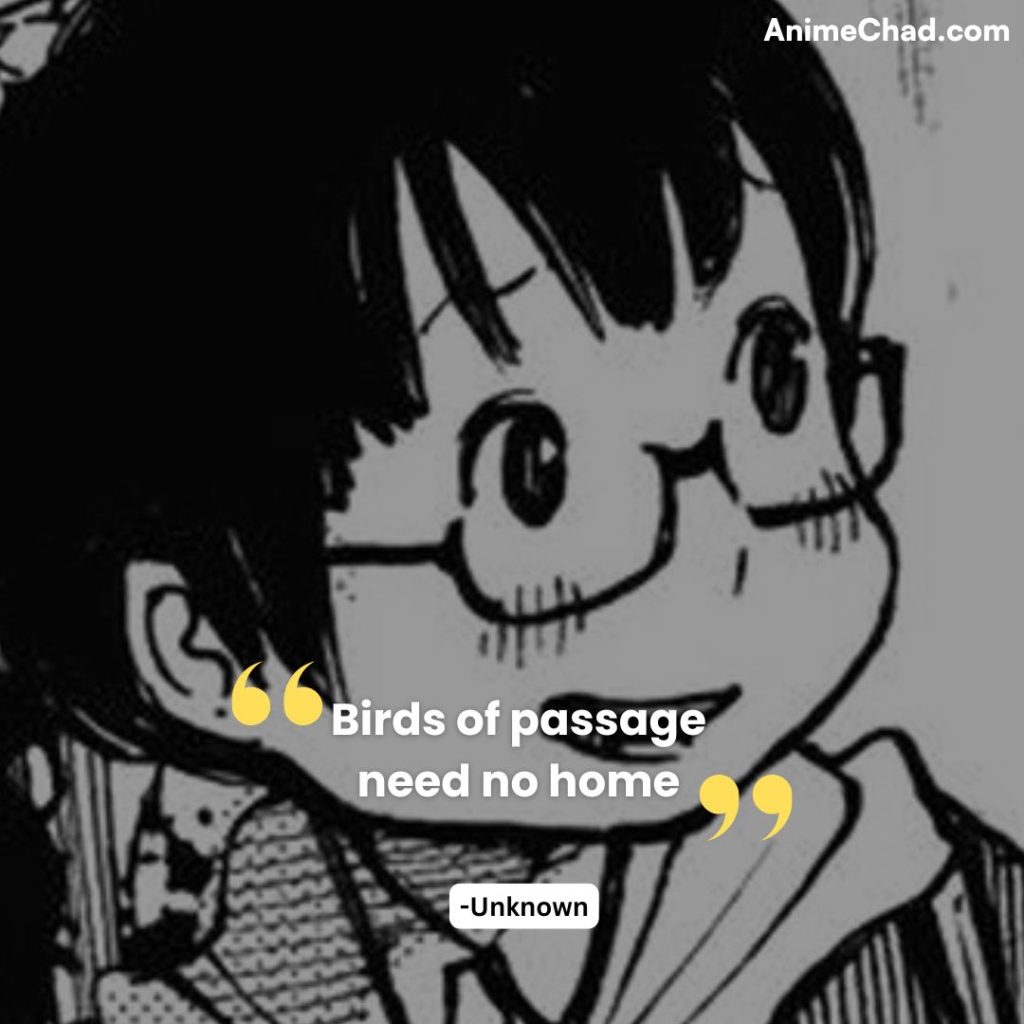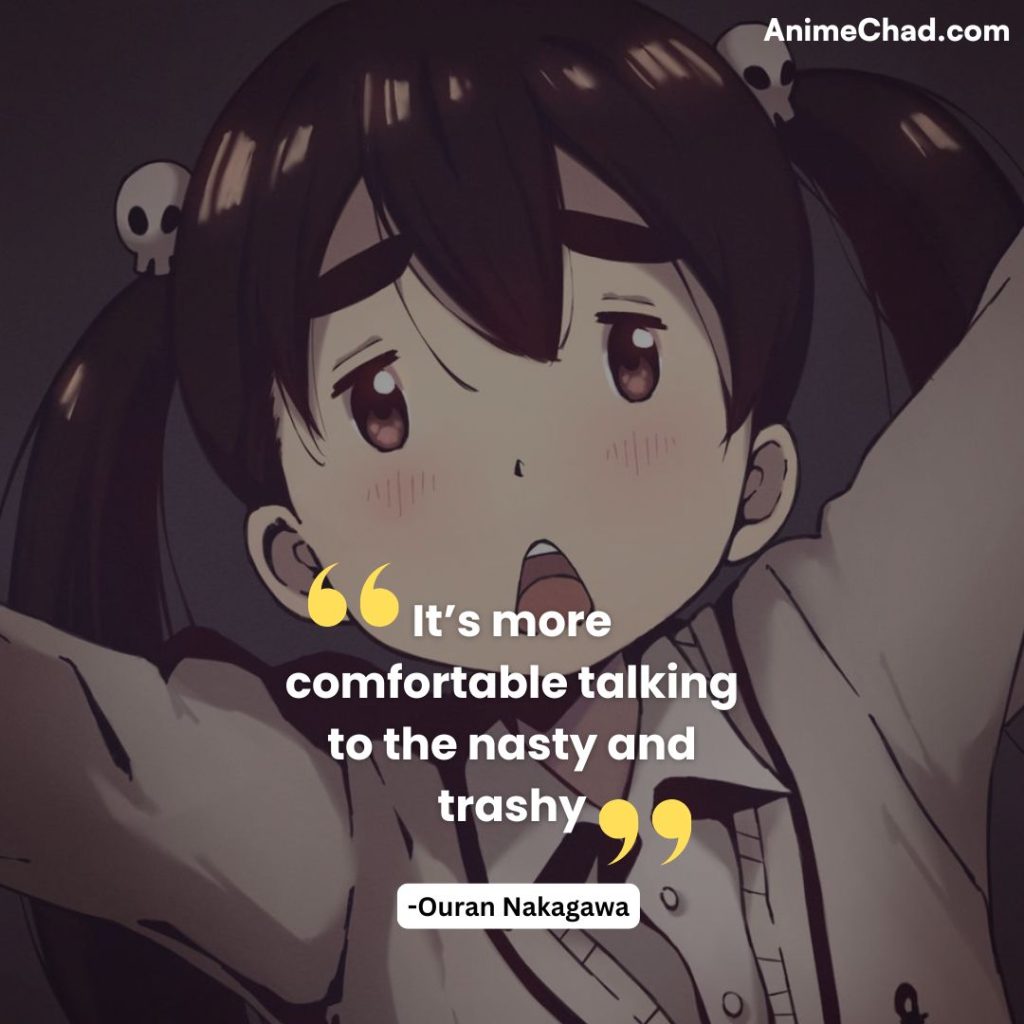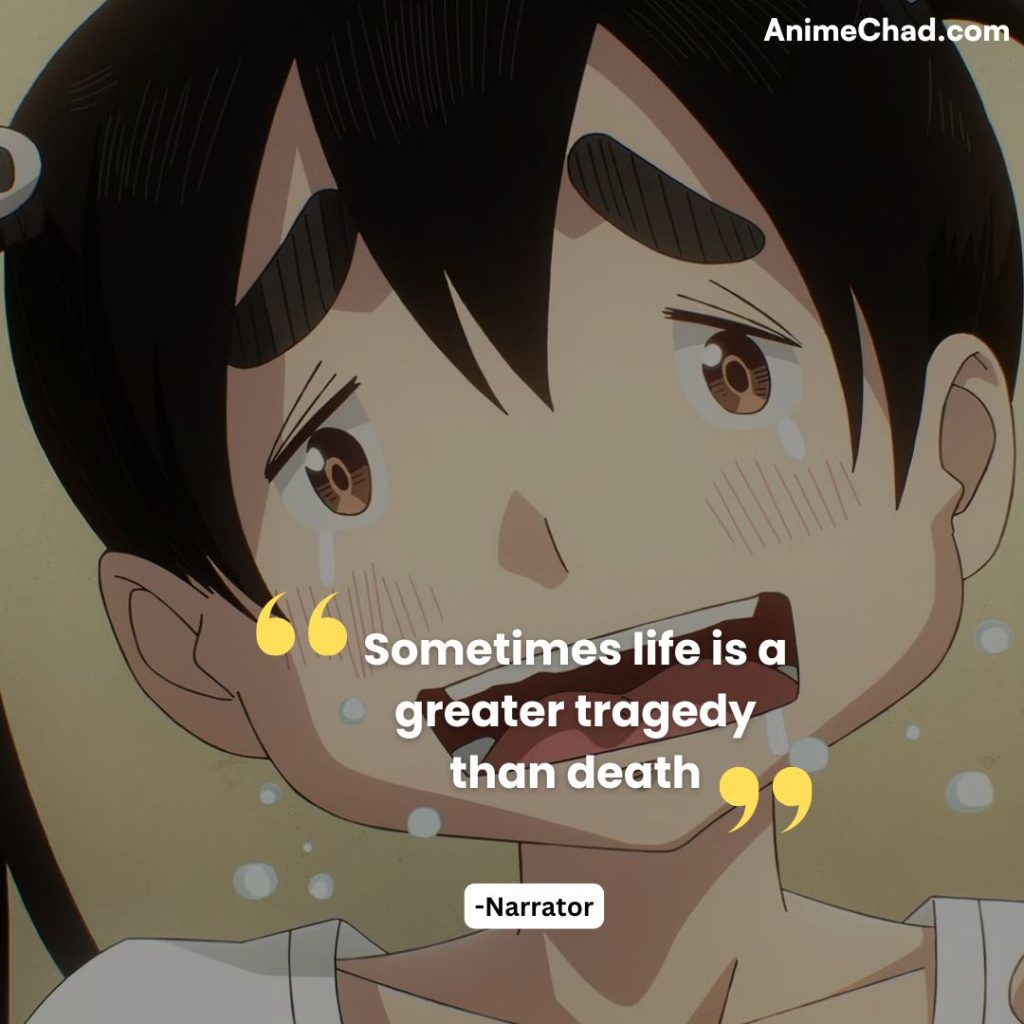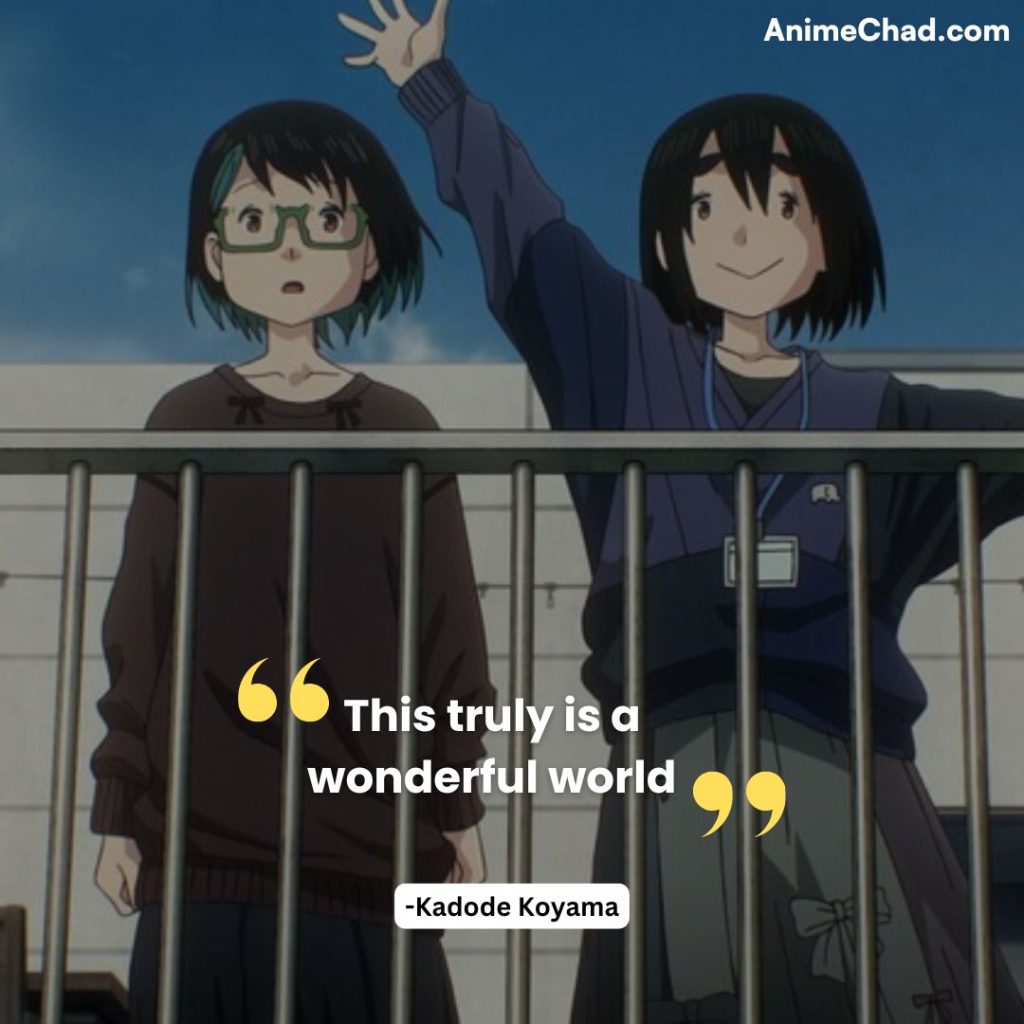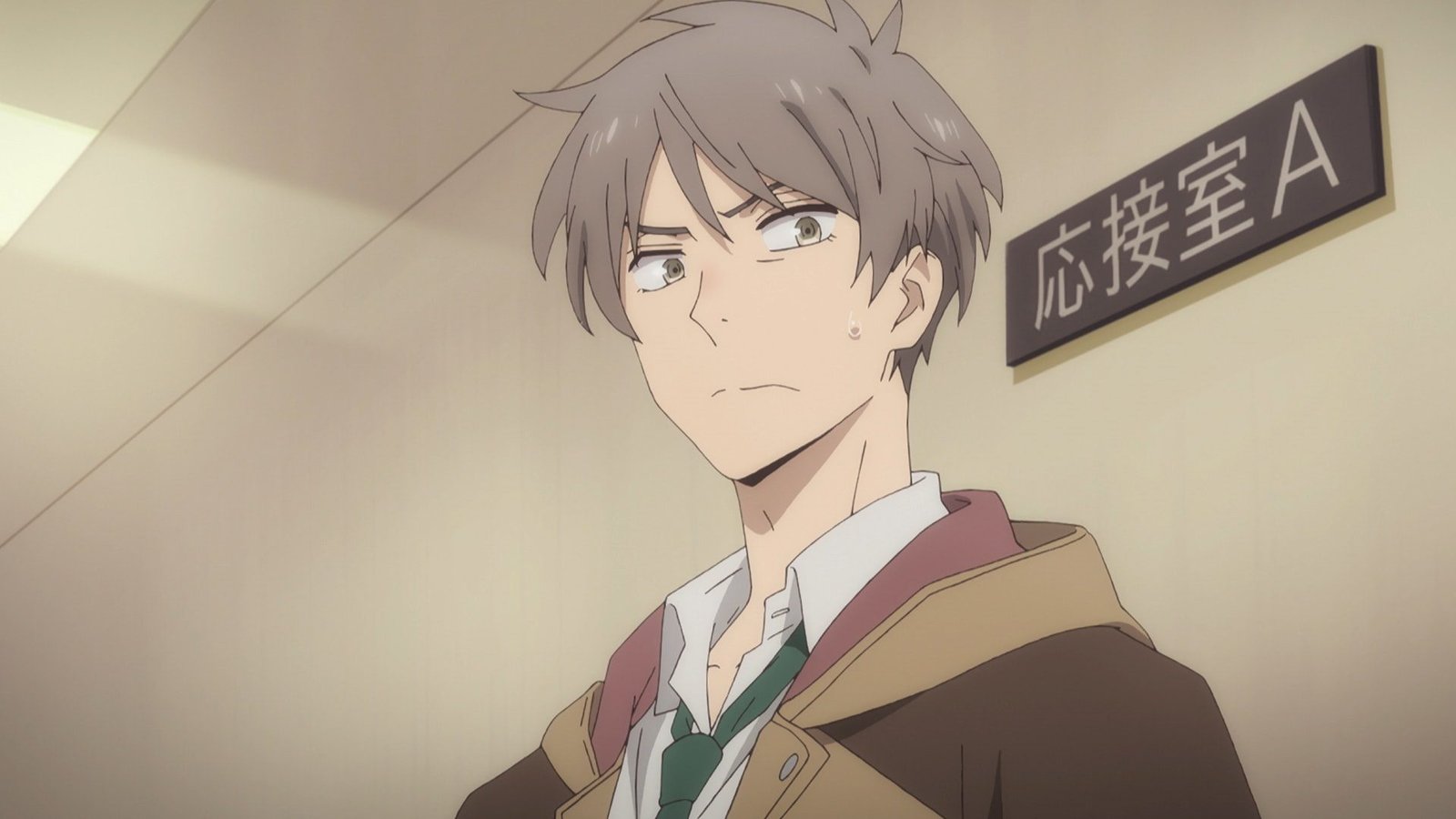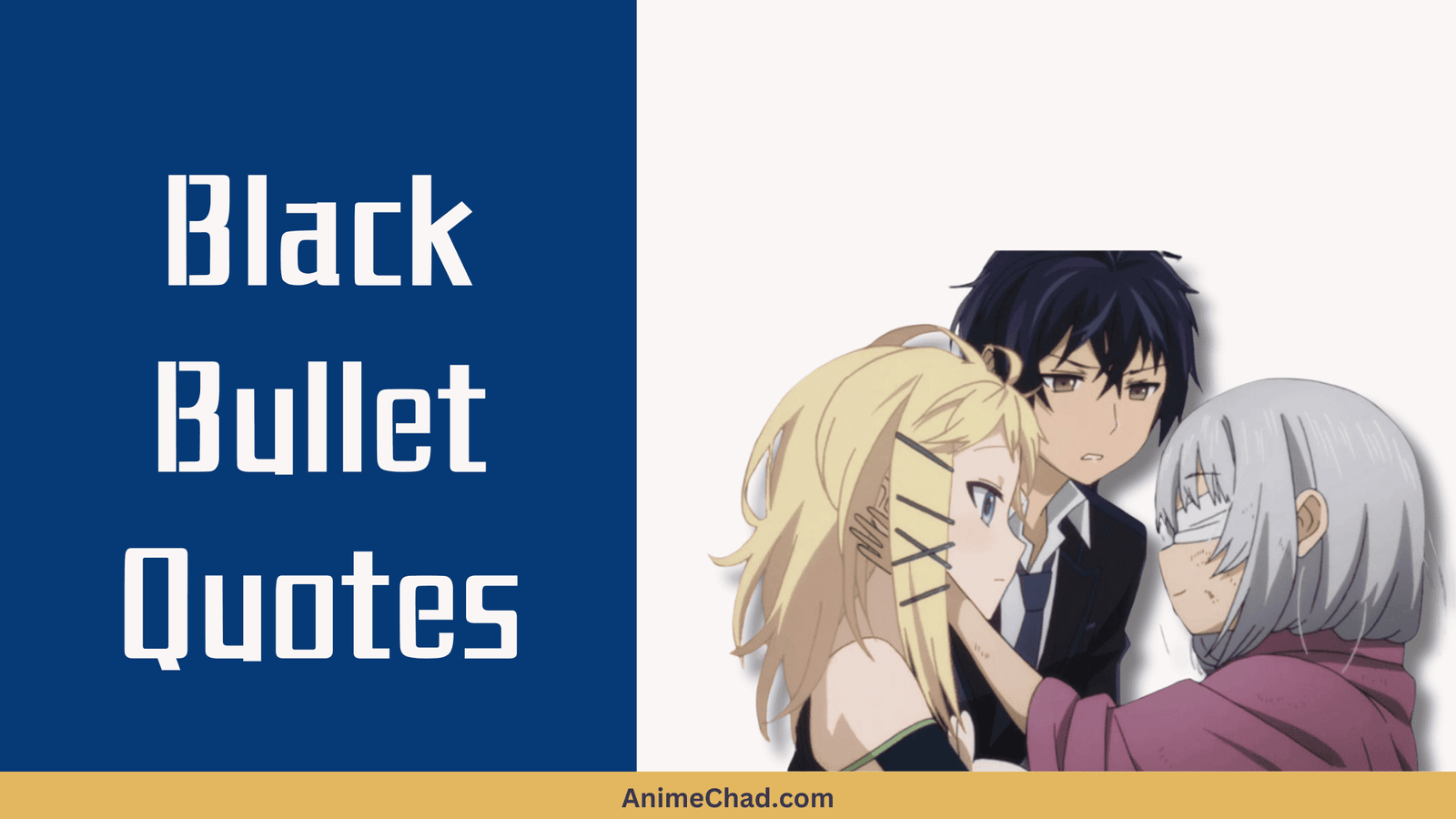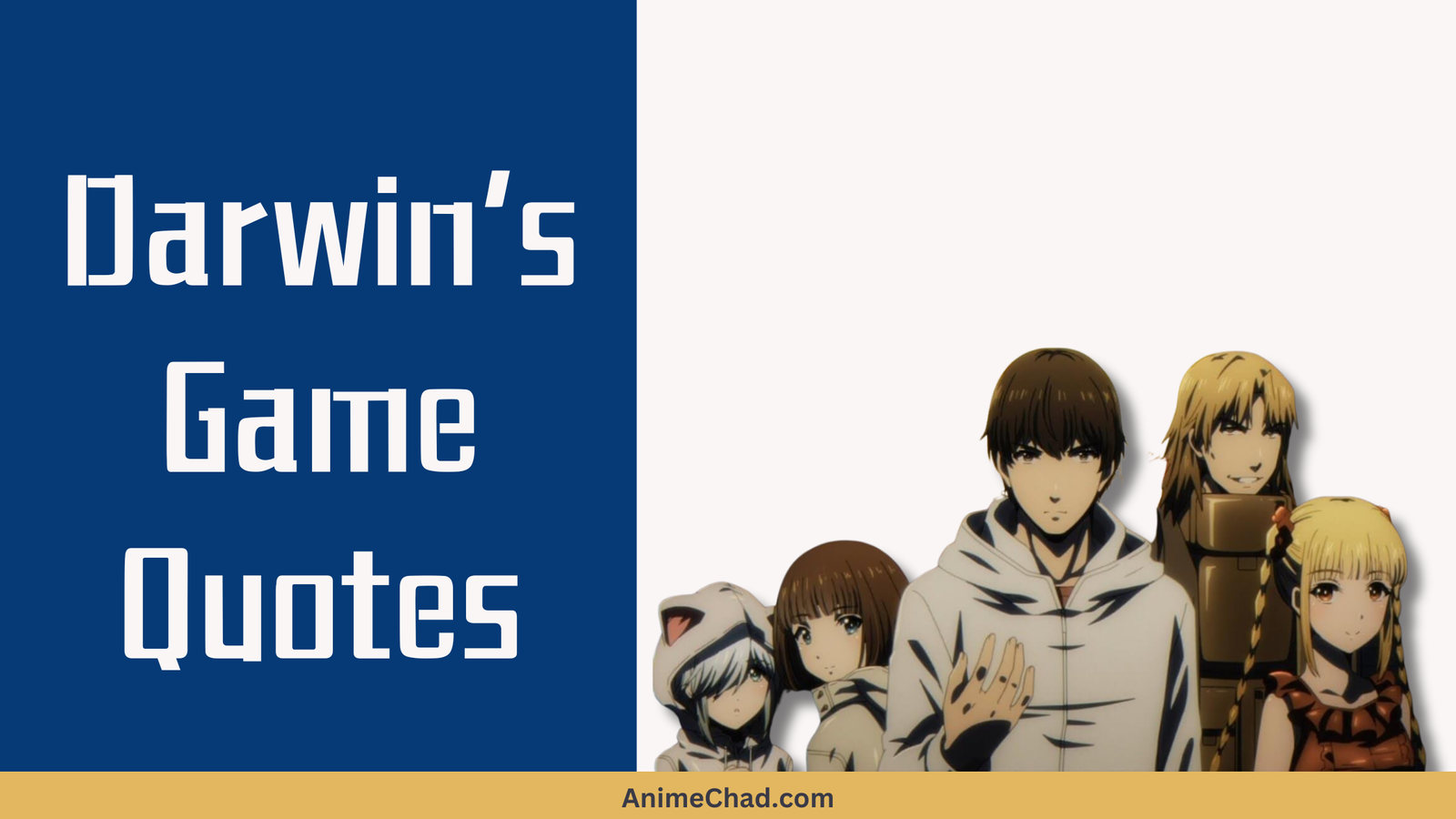Dead Dead Demons Dededede Destruction follows Kadode Koyama and Ouran Nakagawa, two Tokyo high schoolers navigating adolescence under the shadow of an alien mothership.
The series blends dark comedy with existential dread, critiquing societal collapse, political apathy, and the fragility of human connections.
This collection highlights quotes that embody the manga’s exploration of survival, identity, and the absurdity of existence across its chaotic timeline.
Demons plague humanity, but I wasn’t doing anything wrong
Chapter 4
Kadode Koyama
Kadode reflects on childhood bullying, critiquing society’s tendency to scapegoat outsiders during crises.
Even if I study super hard… I’d just become a corporate slave
Chapter 7
Kadode Koyama
Cynical observation about systemic economic oppression, showcasing Kadode’s disillusionment with societal structures.
I don’t want to die being idle and complacent
Chapter 12
Ouran Nakagawa
Ouran’s resolve to act meaningfully contrasts her carefree facade, marking early rebellion against existential nihilism.
When people cheerfully unite against perceived enemies
Chapter 18
Kadode Koyama
Critique of mob mentality during alien persecution, highlighting humanity’s destructive tribalism.
A ninja must complete the mission even at the cost of his life
Episode 1 (Pilot)
Yagami
Establishes the ruthless ninja code that later clashes with Kadode’s vigilante morality.
This world is already starting to end now
Chapter 34
Narrator
Philosophical thesis about living through societal collapse, repeated across Asano’s interviews.
To me, Ontan is absolute
Chapter 22
Kadode Koyama
Declaration of codependency that drives Kadode’s destructive vigilante crusade to “protect” Ouran.
You’re not getting away no matter what!
Episode 17 (Final Push)
Makoto Tainuma
Makoto’s desperate defiance during the mothership’s collapse, symbolizing youth’s rebellion against inevitability.
The difference between your technology and your ethics
Chapter 41 (Investigator’s Report)
Alien Investigator
Alien critique of humanity’s moral stagnation despite technological advancement.
I’ve nothing to lose
Chapter 29
Kadode Koyama
Kadode’s pre-suicide nihilism, revealing her belief that alien intervention might justify existence.
We’ve entered the end of the world
Author Interview (Mangabrog)
Inio Asano
Meta-commentary on the series’ apocalyptic themes, repurposed as in-universe dialogue.
Their story continues
Chapter 100 (Epilogue)
Narrator
Ambiguous closing line suggesting cyclical timelines and unresolved societal decay.
Learning about others… is the essence of cunning
Episode 2 (Retribution)
Zai
Ironically foreshadows Kadode’s manipulation of alien tech for vigilante justice.
Poverty, social polarization… nobody can solve these problems
Chapter 55
Joseph
Corrupt politician’s nihilism justifying AUZA Corporation’s alliance with destructive systems.
I envy you for having something to protect
Chapter 63
Futaba Takemoto
Secondary character’s lament about emotional detachment in collapsing society.
Go back to the world as it was
Chapter 89 (Time Fracture)
Isobeyan
Critique of humanity’s nostalgia for flawed systems rather than creating better ones.
You should exalt me more!
Episode 7 (Vanity’s Cost)
Aqua
Satirical jab at narcissism repurposed for Kadode’s god-complex during her vigilante phase.
A sword is only as good as its wielder
Episode 3 (Ambush)
Yagami
Metaphor for humanity’s misuse of alien technology for destruction over understanding.
I’m done with you coward!
Episode 19 (Last Stand)
Makoto Tainuma
Defiant battle cry during final assault, rejecting passive acceptance of doom.
The hole in your heart can be filled
Chapter 76
Yamaji
Villain’s manipulation of despair contrasted with Ouran’s sacrificial timeline choice.
We are always free to choose
Chapter 44
Nobuo Koyama
Kadode’s father justifying his dimensional shift, mirroring Ouran’s earlier timeline gamble.
Birds of passage need no home
Episode 8 (Nomad’s Oath)
Unknown
Poetic metaphor for displaced aliens and rootless protagonists.
It’s more comfortable talking to the nasty and trashy
Volume 4
Ouran Nakagawa
Ouran’s preference for flawed authenticity over societal pretense.
Sometimes life is a greater tragedy than death
Episode 1 (Pilot)
Narrator
Sets the series’ existential tone through Kadode’s survival guilt.
This truly is a wonderful world
Chapter 100 (Epilogue)
Kadode Koyama
Ironic closing line celebrating found joy amidst unresolved dystopia.

